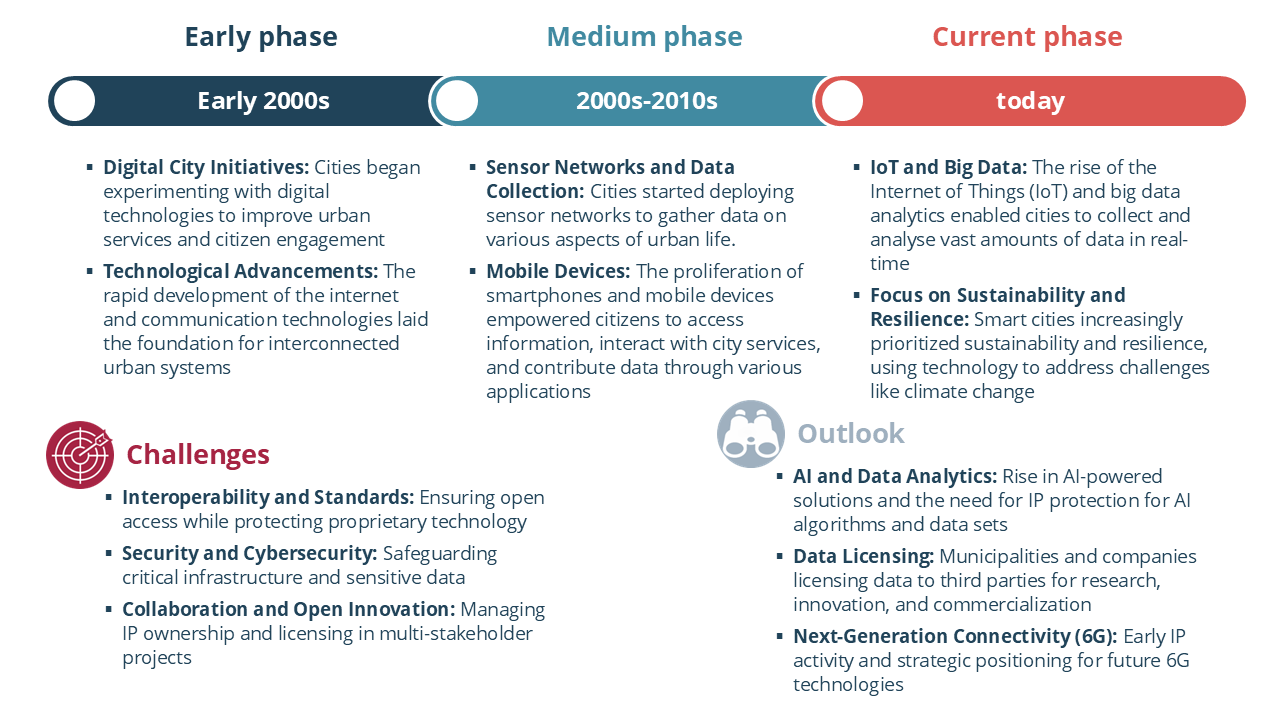
The smart city👉 A city using technology and data to enhance quality of life and sustainability. concept envisions urban areas leveraging technology and data to enhance the quality of life for citizens, improve sustainability, and optimize urban services. This involves integrating Information and Communication Technologies (ICT) and the Internet of Things (IoT)👉 “Connected devices exchanging data via internet for smart functionality” to create a connected and intelligent urban environment.
Intellectual Property👉 Creations of the mind protected by legal rights. (IP) plays a crucial role in fostering innovation👉 Practical application of new ideas to create value. and protecting investments in smart city development. Specifically, IP rights like patents, trademarks, and copyrights incentivize companies and researchers to develop and deploy new technologies that address urban challenges.
In the realm of connectivity and computation, which are fundamental to smart cities, IP protection is particularly important. For instance, patents on technologies that enable faster and more reliable communication networks, such as 5G or Wi-Fi 6, encourage companies to invest in improving urban connectivity. This leads to better access to information and services for citizens and businesses.
Similarly, IP protection for innovations in cloud computing, edge computing, and data analytics encourages the development of more efficient and effective computational solutions for smart cities. This enables better data management, real-time analysis, and informed decision-making for urban planning and service delivery.
Protecting IP in these areas also fosters competition👉 Rivalry between entities striving for a shared goal or limited resource. and collaboration among different stakeholders, leading to a more diverse and dynamic smart city ecosystem. By safeguarding their inventions, companies are more likely to share their technologies and collaborate with others, leading to faster development and wider adoption of smart city solutions.
Furthermore, a strong IP framework provides legal certainty and encourages investment in smart city projects. Investors are more likely to support ventures that have a clear IP strategy👉 Approach to manage, protect, and leverage IP assets., as this demonstrates the value and potential for commercialization of their innovations.
In conclusion, IP protection is essential for the successful development and implementation of smart city initiatives, particularly in the areas of connectivity and computation. It fosters innovation, encourages investment, and promotes collaboration, ultimately leading to more efficient, sustainable, and liveable urban environments for all.




